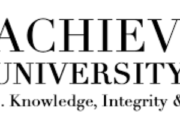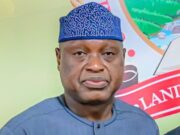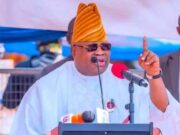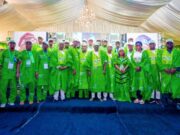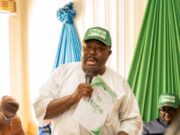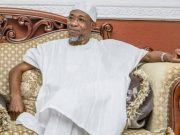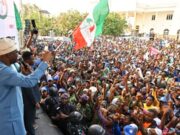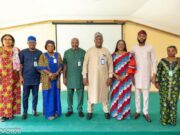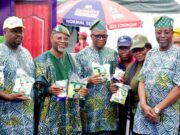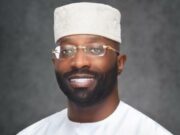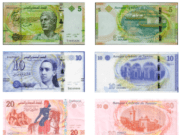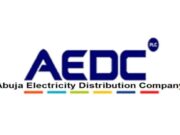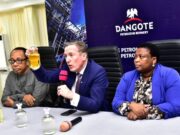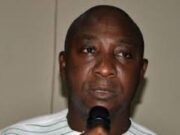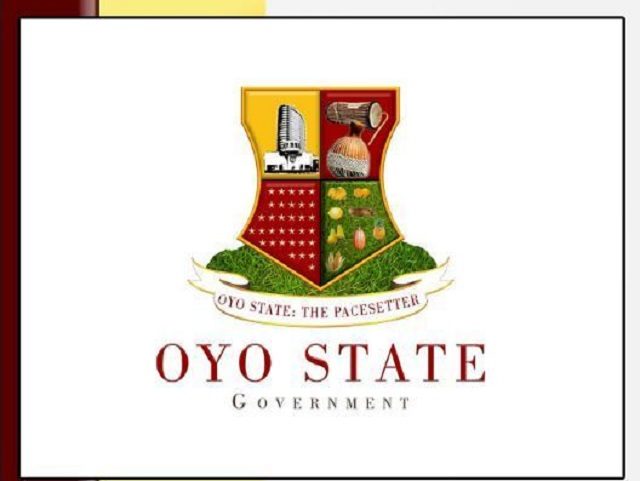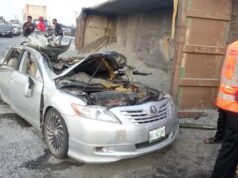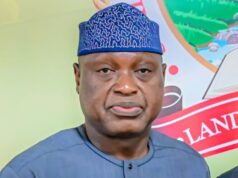The Ministry of Budget and Economic Planning, Oyo State, on Wednesday, presented the report of the implementation of Quarters 1 & 2 of the 2025 Budget, saying that the state achieved 80 per cent revenue for the half-year budget performance between January and June.
Commissioner for Budget and Economic Planning, Professor Musibau Babatunde, stated this at the presentation of the revenue and expenditure performance, held at the Local Government Staff Training School, Secretariat, Agodi, Ibadan.
The Commissioner also said that the state government would soon begin the implementation of another phase of the Sustainable Actions for Economic Recovery (SAfER), with about N5.4 billion earmarked to support small and medium scale enterprises, agriculture, transportation and healthcare sectors.
Babatunde noted that the presentation of the budget performance provided a feedback mechanism on the challenges and opportunities of the budget as well as a chance to assess the 2025 Budget implementation across the various Ministries, Agencies and Departments.
According to Babatunde, the 2025 Budget tagged “Budget of Stabilisation” had stakeholders’ participation across the seven geopolitical zones of the state with the aim of ensuring inclusiveness and citizens-nominated projects.
He added that as a reflection of the Governor ‘Seyi Makinde administration’s commitment to openness and transparency in the budget process, the governor approved a quarterly performance review of the budget.
The Commissioner noted that the governor also granted the request of Civil Society Organisations and other stakeholders to participate in the budget process beyond the point of preparation by approving an engagement with major stakeholders so that they could see what the government has been able to achieve and the challenges it is facing.
Babatunde stated that the revenue performance of the budget stood at 80 percent pro rata, while expenditure performance had reached around 69 percent of expenditure pro rata.
He said: “At the last stakeholders’ budget meeting in 2024 held ahead of the 2025 Budget preparation, we had a request from the civil society organisations that it should not just be at the point of preparing for the budget that they would have inputs, they also want feedback on the budget performance across the various quarters of the implementation of the budget.
“So, the governor graciously approved that we should be doing a quarterly performance review of the budget implementation and also engage with all the major stakeholders that were actually brought in at the point of preparing for the budget. This is to ensure that they can see the revenue and expenditure; what we have been able to achieve and the challenges we are facing.
We should be able to tell them what are the opportunities we have created as well as get their inputs, because we have citizen-nominated budgets in the current budget that we are trying to implement.
If you don’t forget, the stakeholders’ town hall meeting is meant to be a bottom-up approach and all the other set of roadmaps, long-term relevant agenda and our own plan are supposed to be the top-down approach.
“The point in which resources actually allowed us is what we have been able to finalise as a project. So, we need to provide the feedback to all the stakeholders to say that this is what we have been able to achieve in terms of our revenue expenditure and pro rata in terms of what we have been able to do.
“Revenue, at the moment, is around 80 per cent for revenue pro rata in terms of parts. If you put the budget into the half year, we have done quarter 1 and quarter 2; we have been able to achieve about 80 per cent revenue. And, also in terms of expenditure, we have been able to do around 69 per cent of expenditure pro rata too.
“This shows the fact that the outlook is quite interesting. This actually basically doesn’t even include some of the approvals that the governor has given, but those ones will be covered and captured in Quarter 3 of the 2025 budget implementation.”
Responding to a question on the increase in revenues that have accrued to the state, Babatunde said it was important to consider the general equilibrium rather than a partial one, noting that while there have been increases in federal allocations and internally generated revenue, the state’s expenditures have also gone up as a result of the minimum wage increase, mass recruitment of teachers, civil servants and health workers as well as the rising inflation cost in the country.
He stated that the state’s budget outlook is good and that the increase in revenue has also culminated into increased spending aimed at improving the welfare of the residents of the state.
Definitely, it is a huge opportunity for us to implement the budget but don’t also forget the fact that while FAAC and IGR have gone up, we have some other expenditures of the state that have also gone up; take for example the N80,000 minimum wage and consequential adjustments. We have also been able to put some welfare measures for transportation in the state, among other interventions.
We recruited more teachers and more civil servants for the efficiency of service delivery in the state. So, when you consider one aspect, that is a partial equilibrium and people actually don’t consider the second aspect.
So, we have to look at the general equilibrium; what has actually come in and what again demands immediate response of expenditure that we also need to take into consideration. So, it is not just the fact that FAAC and IGR have increased. Our expenditure towards improving the welfare of the citizens of our state has also increased.
Security issues have actually been well-maintained and the agriculture sector is booming because farmers are able to go to their farms and become more productive. We are enhancing the roads framework, especially the rural roads under the RAAMP programme. So, this has actually given us more opportunities than challenges in terms of being able to implement the laudable roads.
Let me also say that the tax net has been widened enough to actually bring in more revenue, because people that are supposed to pay taxes are actually being made to pay,” the Commissioner added.
On tackling inflation in Oyo State, Babatunde said: “When you say inflation, if you check out the breakdown or the basket of inflation, you will discover that the food inflation happens to be the highest.
I am happy to tell you that in the month of April, Oyo State had the lowest food inflation rate in the country and we have traced that to the impact of the Sustainable Action for Economic Recovery (SAfER). The inputs we actually supplied to farmers across the livestock, fishery, and crop production came out because there is always a lag when you actually prepare for a cultural product.
“It is not about output; it is not when you actually put it that it comes out. Some take three months, some take six months. So, the supply that we were able to actually push in to the system, the output market, was able to bring down the level of prices. This actually accounts for why Oyo State is one of the three states with the lowest food inflation rates in the country.
The Commissioner maintained that the state government would focus on the key areas within the four service-point agenda of the administration in the next six months, saying “we will continue to deepen activities across the four pillars, including education, which actually has the highest commitment.
Right now, the rehabilitation of schools is going on. The state Executive Council approved about N10 billion for the first phase of that particular exercise and it is going on across secondary schools in the state.
On security, we have committed a lot of resources so that lives and properties can actually be secured and so that we can enhance the business environment and make sure that Oyo State remains the best destination for investments in the country.
And, in the area of the welfare of the people; this has been improving and I can tell you that another phase of SAfER is going to come up very soon. About N5.4 billion has been earmarked. It is going to be deployed towards supporting small and medium enterprises, farmers with focus on livestock, fishery, poultry and crop production in the state as well as transportation and healthcare systems.
We believe that implementing this will further improve the lives of the residents of the state.
Earlier in their separate goodwill messages, the Executive Assistant to the Governor on Finance, Budget and Economic Planning, Alhaji Gafar Bello and the Permanent Secretary, Ministry of Finance, Dr (Mrs) Adenike Fashina, said the mid-year budget performance report is an avenue to review what has been achieved in the 2025 Appropriation Act, from January to June 2025.
They added that the event would also elicit feedback from the representatives of stakeholders and residents in the state and enable the government to re-strategise and focus more on suggested areas.
Also speaking, a former South-West chairman, Institute of Chartered Accountants of Nigeria, Prince Oyebade Oyedepo and the representative of the Justice Development and Peace Commission, Mr Jide Bamgbose, commended Governor Makinde for the mid-year budget performance review exercise.
The event had in attendance the Special Adviser to the Governor on Budget and Economic Planning, Hon. Simeon Oyeleke; Senior Special Assistant on Economic Planning, Mr Kehinde Ogunsanya; Accountant-General of the State, Mrs Kikelomo Adegoke and stakeholders drawn from civil society organisations as well as across the 33 local government areas.
Packaged by Adekunle Adegboyega








